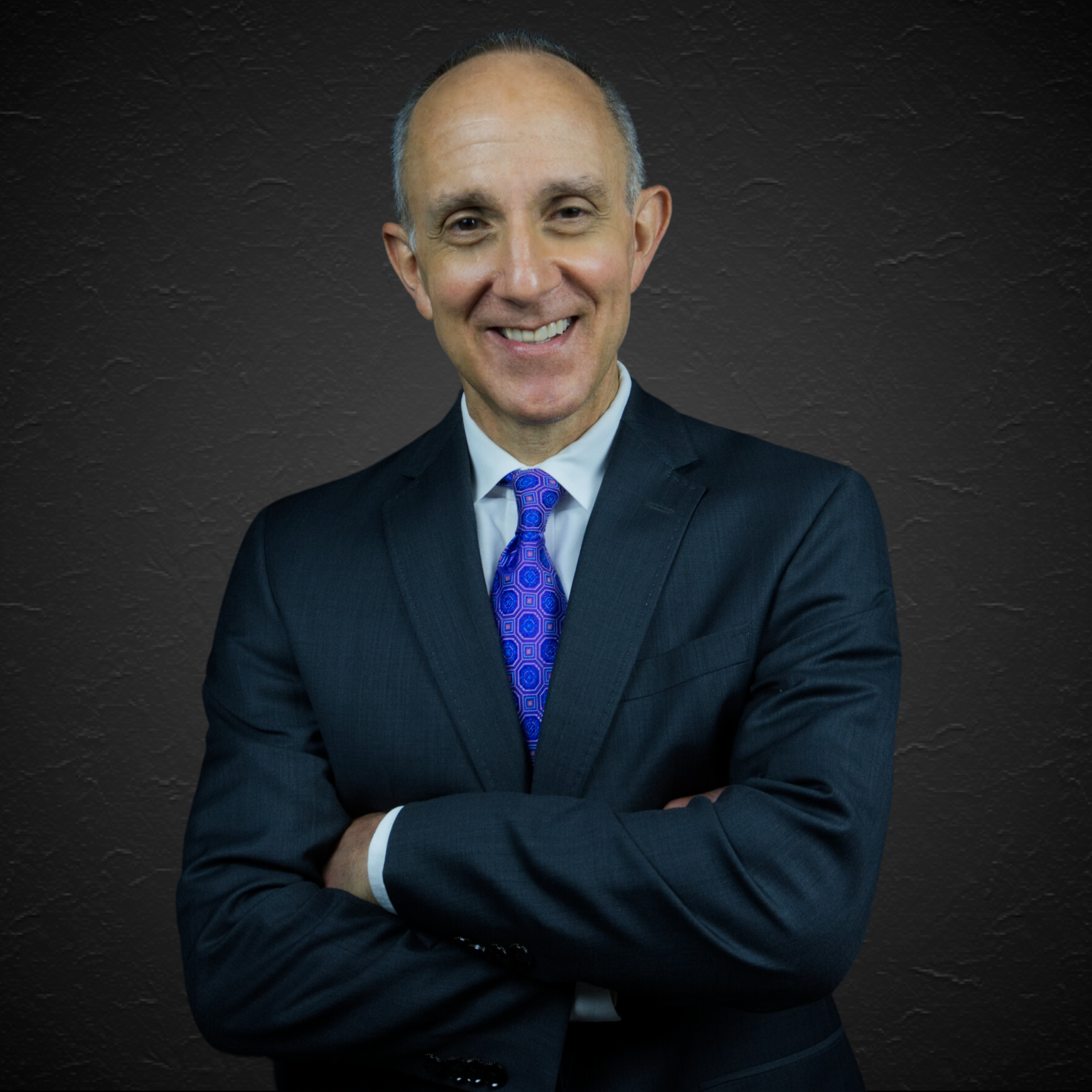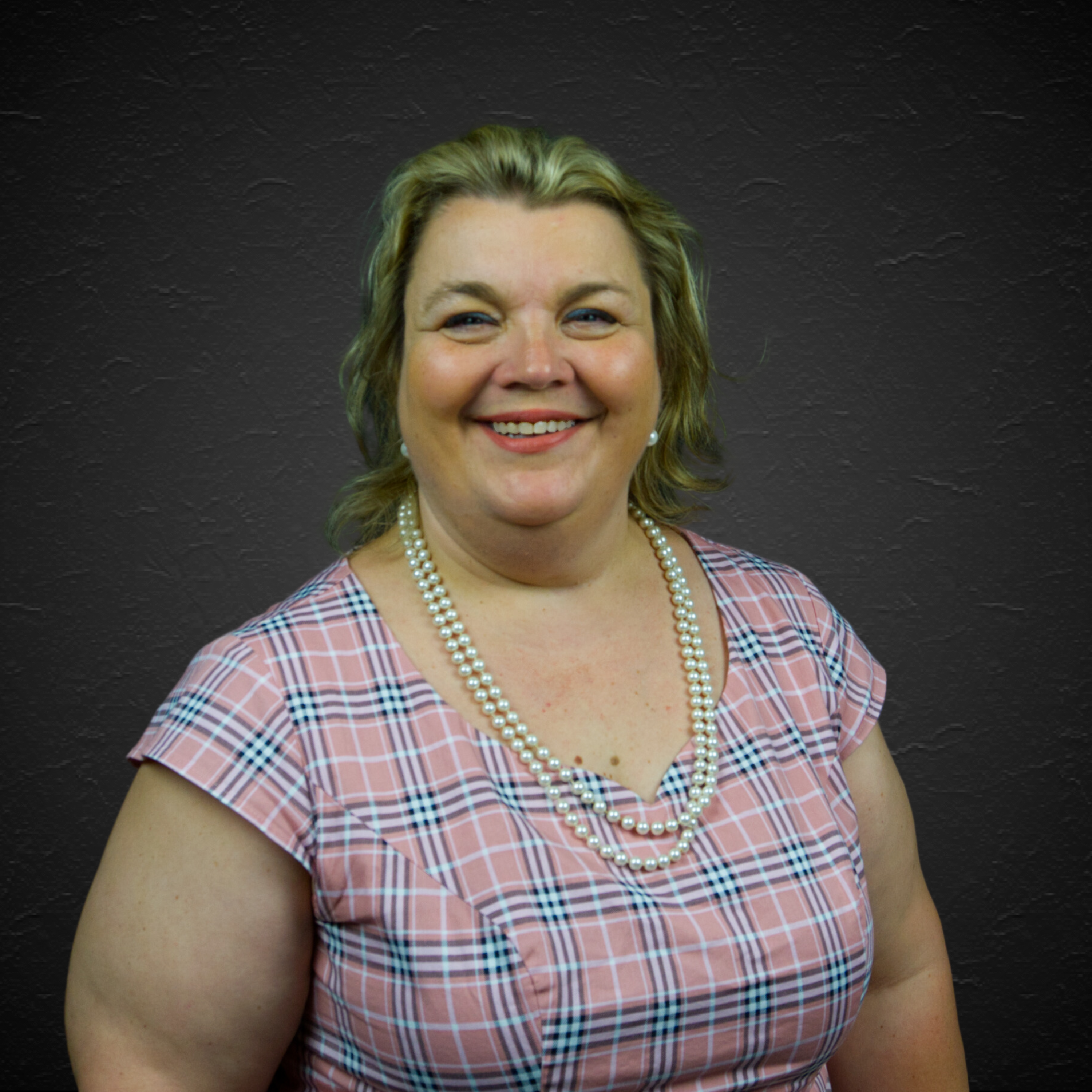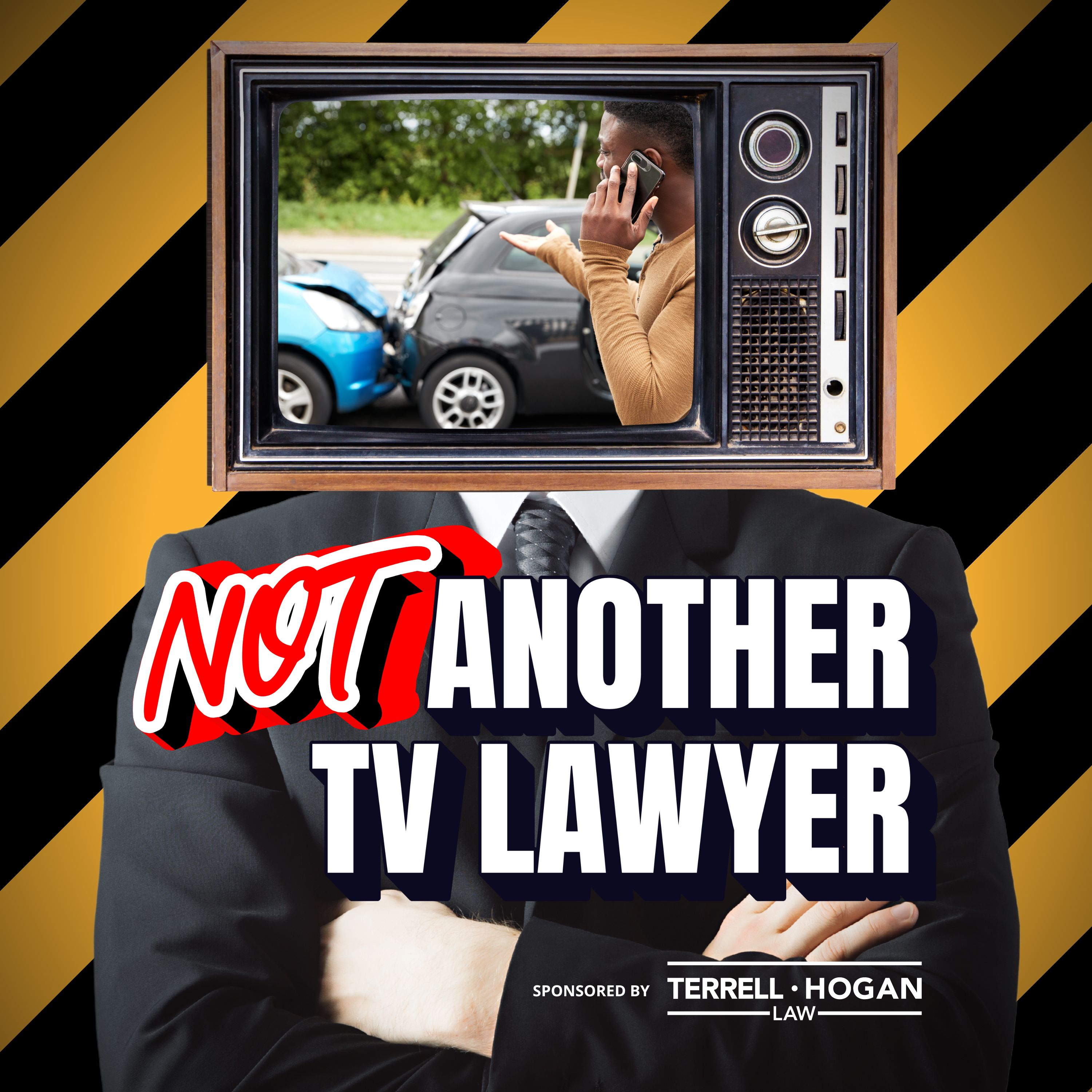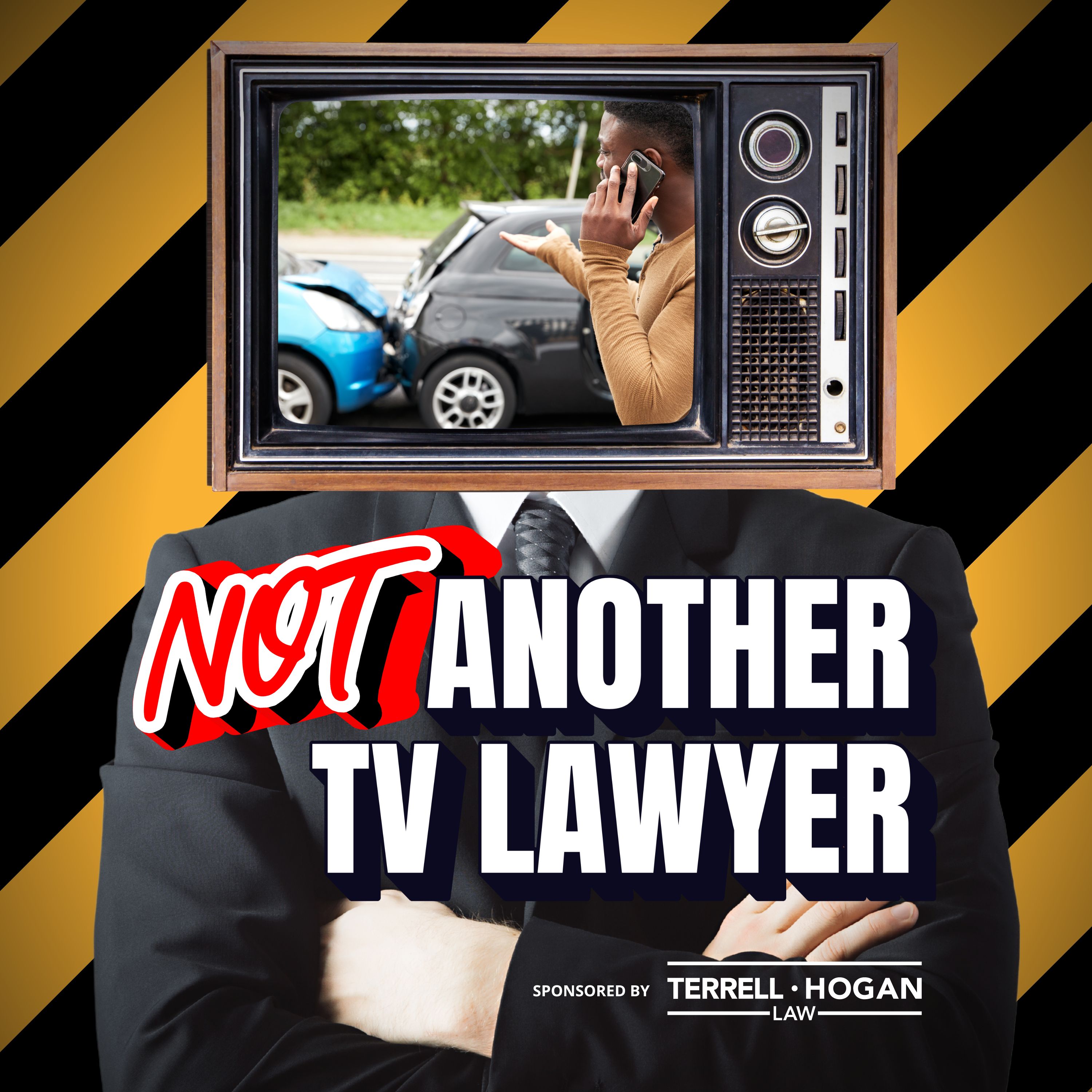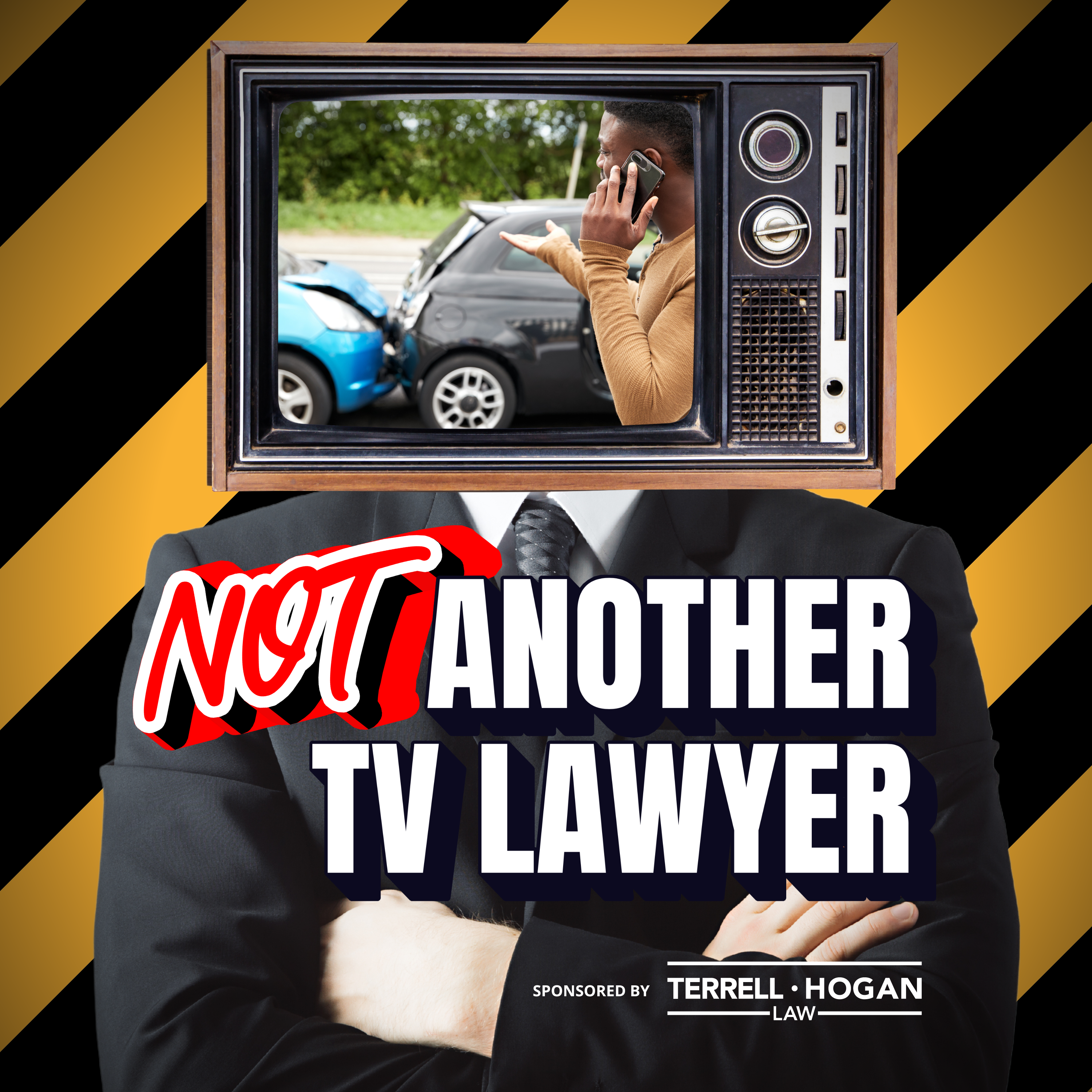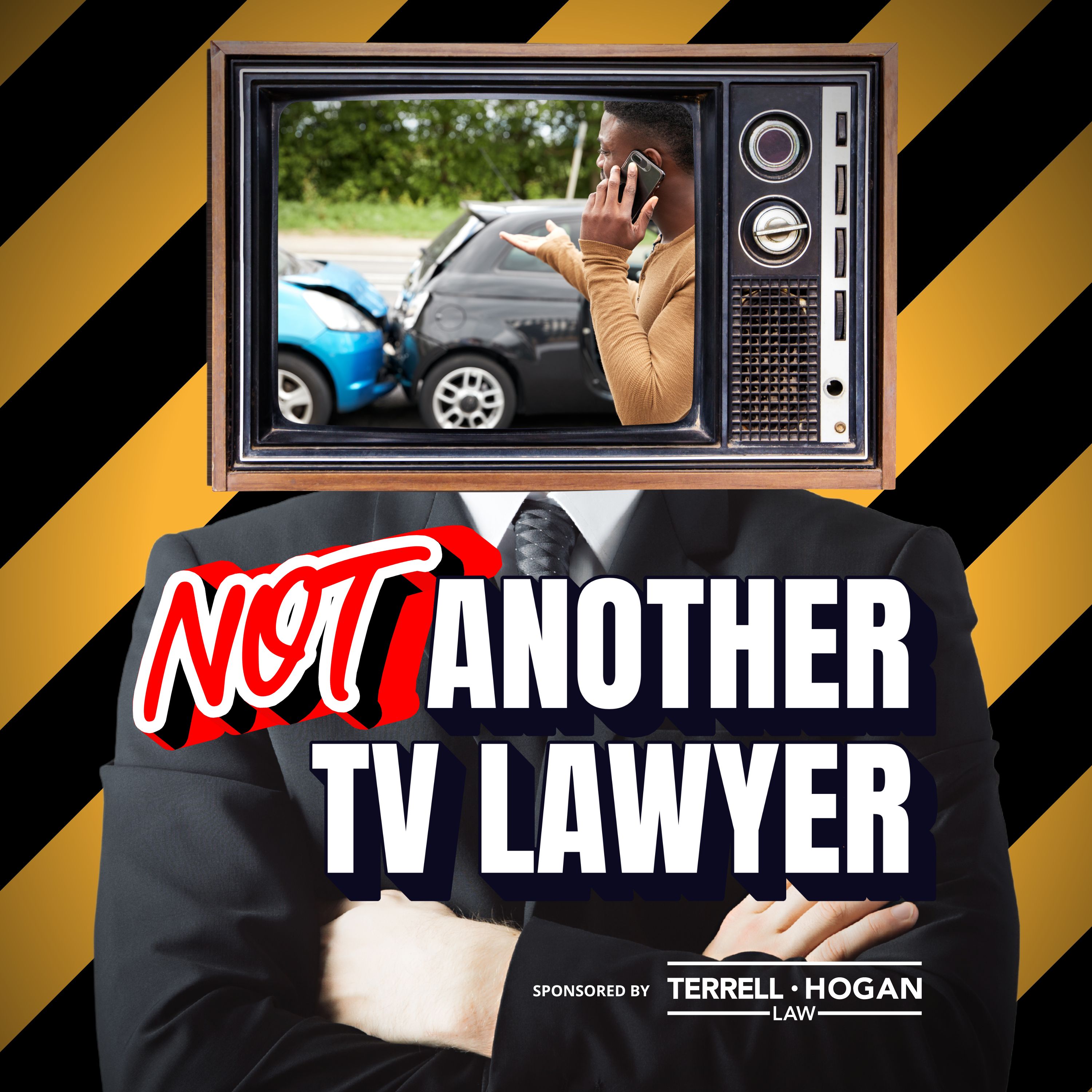Episode Transcript
Welcome to Not Another TV Lawyer. I'm Chris Shakib. I'm Jessica Hall. And this is a podcast sponsored by the law firm Terrell Hogan that's been in Jacksonville for greater than 50 years. And we are very passionate about helping people and personalizing our service to help them get the service they deserve.
I'm Chris Shakib and I'm here with Jessica Hall and we're here for another episode of the podcast, Not Another TV Lawyer. Thank you. Uh, today, the topic of conversation is going to be pre suit demands, the demand letters that we send to insurance companies before any lawsuit is filed that, with the hope that we get some kind of settlement without having to file a lawsuit.
Uh, this is an area that Jessica is truly the expert. for, and so I'm going to let her take the lead in talking about pre suit demands. And, uh, you know, in my, what, 32 years of practice, um, let me see, I first did a demand letter. First one I ever did I was still a law student. I was a law clerk at a firm in 1990, 1991.
And, That was the first demand letter that I sent, uh, and it was not very good. Um, I didn't even put how much I wanted, how much money I was demanding from the insurance company on my behalf. Uh, but in, you know, I've handled now probably thousands of demand letters or been related, involved in thousands of demand letters.
But I have to say that in all the, those demands that I've done, Nobody hands, handles them better than Jessica. Uh, and, uh, so, I'm going to turn this over to Jessica, uh, to be the primary person talking about pre suit demands. So, pre suit demands take place when your doctor has placed you at maximum medical improvement or when you have completed your medical treatment.
And once one of those things happen, I request your updated records and your updated medical bills and review the information and write a letter on our client's behalf. We, the letter outlines the injuries and how the crash affected our client and how their lives have been affected. And if they're married, we indicate how their spouse has been affected as well.
And then, uh, We compile this really nice package together that includes injury photos if we have them, property damage photos of the vehicles involved, the damage estimates for the vehicles involved, any type of citation if the at fault driver received a citation. We make a presentation, we submit it to the at fault insurance company, and by law they have 30 days to respond.
Normally, Depending on the policy limits, um, they will normally call me back and tender before the 30 days is up. When we get the medical records and bills, drafting a demand takes a little bit of time, because I personally read all of the medical records to make sure that we're not missing any other medical records, or that there's not some other underlying issue related to the crash that we may have missed.
And And usually once I, once, once I gather all of this information, I write this demand and the demand can be anywhere from five pages to, I think I recently wrote one that was 15, 20 pages. Um, and I compile all of that information and send it to the insurance company on our client's behalf. If they settle in Um, usually what happens is, in my experience, depending on the policy limits, if it's a high dollars case, that's a little bit harder to get right away, but if it's a 10, 000 case or a 25, 000 case, maybe even a 50, 000 case, they'll call up and be like, we agree with you, we'll go ahead and tender these limits.
And then, what we do after that, what I specifically do after that is, I work on, um, negotiating our clients medical balances to put, because our goal, ultimately, as a firm, is to put as much money in our client's pocket as possible. And so there's a lot of behind the scenes that takes place where I negotiate medical bills and medical balances to put as much money in our client's pocket as possible.
And then, subsequently, we also have to put Um, if there's any health insurance involved by law, we have to put them on notice to see if they've paid any claims related to this auto accident. And sometimes that takes 30 days for them to respond as well or more. Um, so there's a lot of administrative behind the scenes things that go on before a client ultimately receives their settlement funds if their case settles in pre suit demand.
But there's a lot of work that goes into that. Okay, that's a, a very comprehensive overview of what a pre suit demand is. Um, what I think we should talk about as a, so the people understand why we do them is there's a benefit to trying to settle a case without, before you even have to file a lawsuit. And in auto accidents, that's especially.
Uh, you know, that's something that happens more often than it doesn't, and that's different from any other type of case that I handle. The benefit of trying to do a, of doing a pre-suit demand, sending a letter to the insurance company, trying to settle the case, is that it's so much quicker than any other thing.
That we do litigation once you file suit can take, takes time. Mm-Hmm. , you know, at, at the very least eight to 10 months if, and, and depending on the case, several years. Several years. Mm-Hmm. . Whereas, uh, pre-suit demand you, you do it as soon as, uh, it's a good time to do it. And if you're able to resolve it, it usually resolves within 60 days at, at the most 60 to 90 days, I would say.
And so the timing is one of the first. and biggest benefits to the client, uh, when we're able to do a pre suit to band. The other benefit about, you know, other than just it's quicker than a lawsuit, the other benefit is the way that attorneys structure their contracts for representation in auto cases and other cases.
If we have to file a lawsuit, if we're not able to resolve it without a lawsuit, if we have to file a lawsuit, the defense files their response and, you know, denies the lawsuit and we have to litigate, that's when our attorney's fees go up. Now, in the standard contract that we use, which is consistent with the Florida rules that we, we have to follow for contingency contracts involving injuries, The, the maximum pre suit fee that we charge is 33 and a third percent of the gross recovery.
And that's, that's what all firms, or I really charge clients who've been involved in an auto accident or other type of injury. But if we can't settle it in a pre suit demand, Uh, and we file that suit and there's a response and we litigate. The attorney's fees go up 40%. And if we have to pursue an appeal, the, there's an additional 5 percent on top of that.
So the benefit to the client of a pre suit demand is always, it, it, it gives the client the opportunity to walk away with the largest percentage of the total recovery. Our attorney's fees. And the pre suit demands, our attorney fees are thirty three and one third. We try to keep our costs down as much as possible because medical records and things like that are expensive and we have to pay for that.
But if we have to, if, in the instance when we have to file a lawsuit, it's, it's, it's Get the cost go up substantially. The, the cost go up substantially because we have the cost of filing the lawsuit, the, the filing fee, the cost of having process served, service of process, and then, uh. expert witnesses, which are the most expensive part about what we do in litigation.
We have to hire experts, doctors, sometimes accident reconstruction experts, vocation, vocational rehabilitation experts, economists, different types of experts. Those costs really skyrocket once litigation is actively being pursued. So again, the best way to maximize Uh, the recovery for a client in an auto case is to do a very good pre-suit demand, uh, so that the insurance company agrees to settle because it's the quickest way to get the recovery in the hands of the client and the most efficient way.
Mm-Hmm, . And it's the way to maximize what the client receives. Now, auto accidents a particular. Uh, are a great opportunity for pre suit demands because, you know, the proving liability very often is a lot easier because you have police officers who've written up a report, there are tickets issued, things like that.
Liability tends to be a little easier than, say, a trip and fall, where You know, there are a lot of arguments that, well, you, you know, you should have been paying attention to where you were walking or things like that. In an auto case, a rear end collision, T bone collision, things like that. Uh, you know, the, the insurance company is more likely to accept liability, responsibility for the accident, you know, than they would in other types of incidents.
Um, And so, you know, auto accidents, more than anything, uh, it is more common to resolve those without a lawsuit. The, the majority of the cases involving auto accidents resolve that way. And that's, that's different from everything. From trip and falls, medical malpractice, those cases, I mean, it might be 1 percent that settle without a lawsuit.
And one of the, one of the things that we do that I think maybe separates us, our firm, from other firms is that we pay attention to our clients and their medical treatment and we stay on top of it and we don't let things lag for months or years before we do a demand. We, we, especially you and I, we are on top of that.
Right, what I would say, one of the things that makes you most effective, the reason I think you're the best at it is, you know, there's a risk if you, if a client is signed up and, you know, you have the client and you send them off, you know, they're going off to get some kind of treatment. If, if you don't follow up on that client, uh, on a regular basis to see how treatment is going.
If you don't stay in touch with the treaters to see how treatment is going, because you can't just rely on what the client is telling you, you can lose touch with what's going on. Uh, and if you do that, uh, there's a risk that. And depending on who they're treating with, you know, not the ones, not, not the folks we try to work with, but sometimes a client will already be with a provider and they like that provider and so they stay.
Someone we may not know, um, they might just keep providing treatment that's not actually there. Benefiting the case and you know, the, the, the, the care that they're getting is only temporary at best. Mm-Hmm. And that can use up available PIP coverage that, you know, the benefit of PIP is that you don't have to pay that back to, you know, if there's a recovery, um, it, it can be problematic and cause the.
medical balances to skyrocket in a way that, you know, depending on the amount of the recovery, limits what the client walks away with. And so, again, the thing that you do more than anybody I've seen is you're constantly checking in with the clients and the providers to make sure we're on top of that.
How do you do that? I Some of it's in my head, but for the most part, I set reminders on each client's file. Right. Um, to follow up every 30 days to see where they are. And if it's, uh, clients that are well known to us, I stay, like, if they're well known, like they contact me a lot or they have questions or various things, I'm usually in more contact with their medical providers.
And so, I can say, Hey, has Susie Smith stopped treating? And they'll be like, Oh, yeah, yeah, today was her last visit. And I'll be like, Great, I need those records and bills. And so, I have established relationships with the providers that we work with. Yes. And, um, you know, so I check in on our clients. At least, I check in on each of our auto accident clients at least a minimum of 30 days.
And, and that's one of the things that I see you do. The other thing, you said you have relationships. Relationships. You know just about, in my experience, you know just about everybody who handles injury cases, particularly auto cases, uh, in Northeast Florida. Uh, is, does that help you? Yes. How? Um, because, it helps because they know.
That the firm that we, the firm that I work with is reliable, that they're going to get paid if I call them and say, Hey, I only have this much money for client A. I need you to help me on her bill. And they're like, Oh yeah, yeah, we'll, we'll help you because they want to benefit the client as well. Um, so I have, I have found that that helps.
Um, my momma used to say you get more flies with honey than you do with vinegar. Yes. And so, having relationships with people, and I'm from the south, I'm just naturally friendly and talk to people, I've never met a stranger and so I think that that helps and we're, our firm is friendly and we're trustworthy and we're reliable and I think those are things that people, people know, especially medical providers.
If we're handling an auto case for somebody, a medical provider doesn't have to be concerned if they're going to get paid or not. They know they're going to get paid when the case settles. Alright. We also have something that, um, I know when I used to, uh, before I worked with Terrell Hogan, uh, I was a solo practitioner for a while between when I first left the state attorney's office, worked for a law firm, and then I went out on my own and then I went to Terrell Hogan.
Um, and So, you know, a lot of this I did on my own in those days, but, uh, I didn't have what we call a case management, uh, program or system. Mm hmm. And we have that now. We have that. It's amazing and it makes my life easier. So tell, tell us what that is and why it's so helpful, particularly in auto accident cases for pre suit demands.
So we use a program called Clio and at the beginning Anytime that we get a new auto case, I have dedicated tasks already built into Clio. So as soon as we have a new auto case, I just hit add it and it adds all of the tasks to our client, to our new client. So it ensures that I don't miss things like getting the 9 1 1 calls because those are time sensitive.
Getting the body cam footage, getting the crash report, getting any other crash related evidence because all of that is very time sensitive. And built in with those tasks. There's also the 30 day reminders to follow up with the client. Um, there's making sure that we send all of the appropriate letters to the insurance companies that we're supposed to send.
I have reminders for all of these built into our case management software, which helps me significantly, because I don't have to remember to do all of that just out of my head. Um, when it comes time to preparing the pre suit demands, I send out medical records requests. I usually try to do those a month or so ahead of time, but when I think that treatment is about to finalize, I try to get those records early so that we can get, as soon as I get the records, we can do a demand.
Um, the, our case management software helps with that because it sends reminders to me to follow up on things, so I can put, when I do a task, or like when I generate a document, I put a task on there to remind her to follow up within like five days before it's due or something along those lines so that it helps us stay on track.
Um, our case management software is also fantastic because we can upload our medical records and I can upload things as they come in. And so we will have the records in two places so I can look in the case management software and see what documents we've received. And then I can be like, Oh, I don't have those records from Baptist Medical Center.
And then I can follow up with Baptist and try to find out where our records are. So it helps, it helps me stay on track. And we want complete records, complete bills, and all of the things that you just described because the pre suit demand is a letter, but it's a letter that if you do it right, and you do it right, Is it tells a story.
It tells the story of the case. From beginning to end. From beginning to end with all the things that the adjuster who works for the insurance company who's making the decision as to whether or not to offer any money to settle the case and if so, how much money. Whether it's going to be their policy limits or, or something less.
All those elements. The photos. If there's a 9 1 1, call that. The, uh, crash report, the, all of those things about what the liability, who's at fault in the accident, and then damages, what, what kind of care they needed, how it affected the person, you, you put all of that in there, and the, the story has to be complete, and in my experience, Adjusters are looking at this and they've, they've practically, I, I think they actually have a checklist that they're, that their companies that they work for give them.
And they're looking to make sure that, that certain things are in there. And if you, if not everything in there, on their checklist is there, they will not make an offer or they'll make a minimal offer. Right. Is that, What happened is, would you, do you think that's? I think between checklists and they may have a similar case management software that does something different for them on their insurance side.
I think between those two that that, that's probably what comes into play. But for the demands and pre suit, like, I want to tell the story. I want the story to be accurate. I want to paint the picture of how this crash has affected our client. I want the adjuster to be able to read it and be like, Oh. If this guy is really injured or this person is really injured, like, I need to go ahead and get this resolved.
And I feel like we write the pre suit demands in such a way that it encourages the insurance companies to make good decisions and, and do the right thing. Well, so they have their own programs. We have case management. We use Clio, uh, we're, we're, we're not getting paid to, to recommend Clio. No. We, we like Clio because it works.
It works. Uh, but, you know, some insurance companies like the most famous program that they use is what's called Colossus. And it has a whole process of evaluating claims and trying to, trying to not pay much money. I mean, and, you know, it, the things we do are kind of, you know, I've, I've taken courses on what Colossus does.
All the things we do are the things that, you know, counteract what the insurance company program of Colossus, uh, you know, is, is looking for. The things that disqualify your client from getting what they should. And I spend a lot of time reviewing the medical records and reviewing the billing. If the billing is incorrect, if there's something wrong with the billing, if the proper adjustments and the proper insurance payments are not being applied, I will not hesitate to contact the provider and be like, Hey.
I have a question about your bill. Is this being applied properly? And because, you know, there, there's the human error, and so people can make mistakes, and sometimes they may not know something is happening, and then when you bring it to their attention, they can fix it. It's like PIP adjustments and PIP payments and things like that.
So, um, whenever we get the billing and things, I'm always making sure that, A, the billing is correct, that, uh, There's the proper insurance payments and PIP payments and health insurance payments, if there's health insurance. And I'm trying to make sure all the proper payments have been applied so that we can get to the real heart of what the balance is.
So when the case gets resolved, I have a good number to negotiate from. And once we send a pre suit demand, if for whatever reason we get a low offer, I personally will not hesitate to call the adjuster and be like, Hey, I don't think that you've actually reviewed our demand. Did you know that such and such and such and such and such is happening?
And then I've had responses, Oh, Oh, I didn't see that. Let me read that. And then they will agree to do what I asked them to do to begin with. Right. It is not my experience with you that you are timid in pointing out what they've missed. And, you know, the, you, you. When you talk to 'em, uh, you re you really advocate for 'em.
I, I'm the one who's the attorney. But you, to me, you're as, when you're doing that work, uh, you're as much an advocate as, as I am. It's really more team I to be. I try to be as much of an advocate for our clients as I possibly can, and I, and. What I think that they're looking for, ultimately, is they want to make sure that all the information is there that they need.
The numbers, the medical bills, lost wages, the hard numbers, the amount of money, you know, they want to know what the insurance company is going to demand back, the health insurance. They want those hard numbers and, you know, that's one of the things they first and foremost expect to know. Uh, when they're deciding how much to offer, if anything, to settle a case.
But then it, if we can put a human face on how the auto accident affected our client's lives and, and, and somehow connect with the adjuster to, on a human to human basis, uh, that makes a difference. Thanks. And watching you, uh, with some of our clients over time. I mean, I, I can tell that the adjusters, I've heard you repeating that the adjusters said, I'm so sorry for what happened to your client.
And getting them to see our clients as human beings, and not just a number, um, and, and understanding them in human terms makes a really big difference. And I don't, Uh, I don't see how anybody could do that for their clients if they weren't in constant contact with them. And I know that, you know, that both I and you talk to our clients on a regular basis.
This whole process of pre suit demands, it really isn't something that can be done automatically where the client comes in. And they get word from their lawyer, All right, we already sent our demand out and it's, How could you do a pre suit demand without having a lot of input from the client, Working with the client?
It would be difficult and if not near impossible, Because how do you know what's going on if you're not talking to them? Right. If you're not interacting and, and, I mean, I, I think we have a great relationship with our clients. They contact us on a regular basis and we respond. And. And I will never hesitate to say, Hey, are you still treating?
When was the last time you treated? How's your treatment going? Because I want to know what's happening. And then if they're not getting the treatment that they need, I need to be able to help them pivot to get to where they need to be. So I think contact with our clients in a pre suit, in a pre suit capacity, well, I think contact with our clients at any time is important, but especially in a pre suit capacity because we're building the foundation for their case.
Right. I don't think that if you don't stay in touch. with your clients and, and build an actual relationship with a lot of back and forth communication. The, there's no way to do an effective pre suit demand. Uh, and if you lose touch with your client and the client kind of falls off or falls through the crack, sort of.
It shows in the demand and it makes the likelihood of getting a decent pre suit. offer, uh, much lower, very hard. Those are the cases that don't settle and end up in litigation. Um, and so staying on top of everything, which, which we do, uh, is one way to avoid that, but then really communicating, not just contacting, but the clients, but, but really finding out what's going on and, and asking questions, you know, because they may not even know.
What to talk about, have you, did you have to use, do you have disability coverage at work or do you have your own disability coverage? That can affect the demand, did you, were you covered by that or do you have AFLAC? Because that's another thing that's not that common but uh, can provide coverage and all of those things make a difference ultimately in, in, in getting the clients a fair recovery.
Uh, So, you know, it boggles my mind when I hear people talk about other law firms. You know, I'm not naming names, but to where, yeah, I have no idea what's going on. I haven't heard from the attorneys or the staff in a long time. Oh, and they just called me. They said they got an offer and I hadn't heard from them since.
a long time ago. And I said, well, how is that possible? And how do you feel about the offer? Well, I don't think it's very high. And they tell me that's the best that it can be. Well, yes, because they've lost touch. And when that happens, it's hard to really get an effective result. It's, to me, it's essentially, to me, that.
Auto accidents, especially from beginning to end in demand and pre suit, is basically like driving a car. If you start on the correct road at the beginning of the case, and you continue maneuvering down the correct road at the beginning of the case, then you're not going to have any pitfalls and potholes, and you're going to know where everything is in your case.
I think it's important, I am, communicating with our clients is one of the things I think I do really well, and our case management software helps with that. Um, and just one of the many tools that we use to do pre suit demands for our clients. Yeah. I, I think that the main point for pre suit demands, or the main couple points is they're very important and, and it's, if they can occur, if we can, if, if that's, a pre suit demand should always be made in an auto accident, and with a very, very few exceptions.
And it's the best way to get a recovery for the client in a way that puts the most money in the client's pocket. But that can't happen without a lot of communication back and forth with the client. And if, if there isn't that, then it, the chances of success aren't very high. So the moral of the story is if you have an attorney and you have an auto accident, everybody needs to be in frequent communication.
And especially when important things come up, like when you change medical providers and treaters, or something critical comes up, you need to let your attorney know if you have an attorney. Um, and if you are in an auto accident and you don't have an attorney, please give Terrell Hogan a call. We'll be happy to help you.
Thanks again for listening to Not Another TV Lawyer. We hope that you will tune in to the next episode. Not Another TV Lawyer is sponsored by my law firm, Terrell Hogan Law. Terrell Hogan represents people in a lot of different areas of injury type law, as well as business claims throughout the state of Florida.
We represent people in auto accidents, trip and falls, people who have been exposed to asbestos and developed conditions related to that. Victims of medical negligence, victims of defective products, including medical devices and pharmaceuticals. Please feel free to look us up at www. terrelhogan. com. We look forward to hearing and being with you soon.
